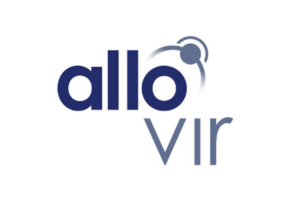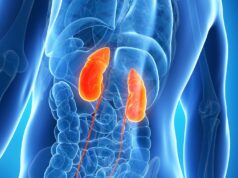 AlloVir, a late-clinical stage allogeneic T cell immunotherapy company, has announced the presentation of final results from a Phase 2 study of posoleucel, an investigational, allogeneic, off-the-shelf, multi-virus-specific T cell (VST) therapy, being studied for the treatment of BK viraemia in adult kidney transplant recipients.
AlloVir, a late-clinical stage allogeneic T cell immunotherapy company, has announced the presentation of final results from a Phase 2 study of posoleucel, an investigational, allogeneic, off-the-shelf, multi-virus-specific T cell (VST) therapy, being studied for the treatment of BK viraemia in adult kidney transplant recipients.
The findings, presented at the American Transplant Congress (ATC 2023; 3–7 June, San Diego, USA) during a late-breaking oral abstract session, support the safety and antiviral activity of posoleucel in adult kidney transplant recipients with BK virus (BKV) infection. Currently, an AlloVir press release states, there are no “effective treatment options for BKV infection”. Top line data were shared earlier this year.
“Our virus-specific T cell therapies have the potential to offer new hope to immunocompromised patients by preventing or treating devastating viral infections such as that caused by BKV,” said Diana Brainard, CEO of AlloVir (Lexington, USA). “The Phase 2 data presented at the ATC continue to support the potential benefits of posoleucel use across transplant indications. The patients treated with posoleucel had greater increases in BKV-specific T cells as compared to placebo patients, and these cells persisted through week 24 post-dose, which reinforces posoleucel’s mechanism of action. Additionally, in posoleucel-infused patients we see bystander benefit with endogenous BKV-specific T cell activation, increasing the likelihood of durable benefit.
“As we continue enrollment in three Phase 3 clinical studies exploring the potential of posoleucel to prevent or treat infections in allogeneic hematopoietic cell transplantation (allo-HCT) patients, we are also consulting with key opinion leaders and preparing to meet with the FDA to gain alignment on a Phase 3 clinical study design to evaluate posoleucel’s treatment of BKV infection in kidney transplant patients.”
BKV infection, the press release states, poses “a significant threat to kidney graft survival”. Over 90,000 kidney transplants are currently performed each year globally, it adds, and the virus reactivates in up to 20% of these patients. In patients who have reactivated BKV, a substantial portion will develop high-level viraemia. Approximately half of those will develop BKV-associated nephropathy (BKVAN), which can lead to decreased kidney survival and a return to end-stage kidney disease (ESKD) and dialysis, the release argues.
The Phase 2 study evaluated the safety and efficacy of posoleucel to treat BKV infection in adult kidney transplant recipients with plasma BK viral load between 350-10,000,000 copies/mL (stratified by low [<10,000 copies/mL] or high [≥10,000 copies/mL] viral load at study screening). Consensus groups, including the American Society of Nephrology and the American Society of Transplantation, consider BK viral load of greater than or equal to 10,000 copies/mL to be presumptive BKVAN. The primary endpoint of the study was the safety and tolerability of posoleucel versus placebo, and the secondary endpoint of the study was the change in BK viral load in patients receiving posoleucel versus those receiving placebo. Top line results from this study were shared earlier this year.
The release details that posoleucel demonstrated “clinically meaningful reductions in BK viral load as compared to placebo”, with the greatest antiviral activity seen among patients with higher viral loads and those who received more frequent posoleucel dosing. At week 24, the percentage of patients with a ≥1-log viral load reduction in the biweekly dosing group was 50% (10/20) vs. 28% (5/18) in the monthly dosing group and 14% (2/14) in the placebo group. In the high viral load stratum (≥10,000 copies/mL), 69% (11/16) of patients who received posoleucel overall and 75% (6/8) of patients in the biweekly dosing group, achieved a ≥1-log viral load reduction vs. 25% (1/4) of patients in the placebo group. Biomarker data demonstrate that BK viral load reductions coincided with substantial expansion of functional BK-directed T cells specific for both posoleucel-targeted and non-targeted antigens—indicating both direct and bystander T cell benefit not observed in placebo patients. Repeat administration of posoleucel was generally well tolerated, with balanced safety across posoleucel dosing groups and placebo, the release concludes.












